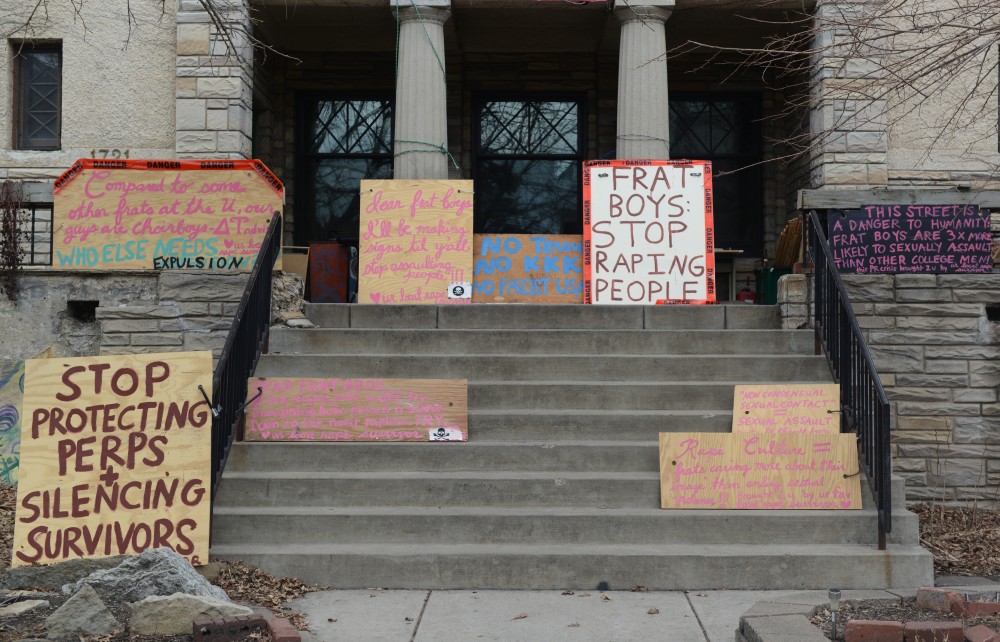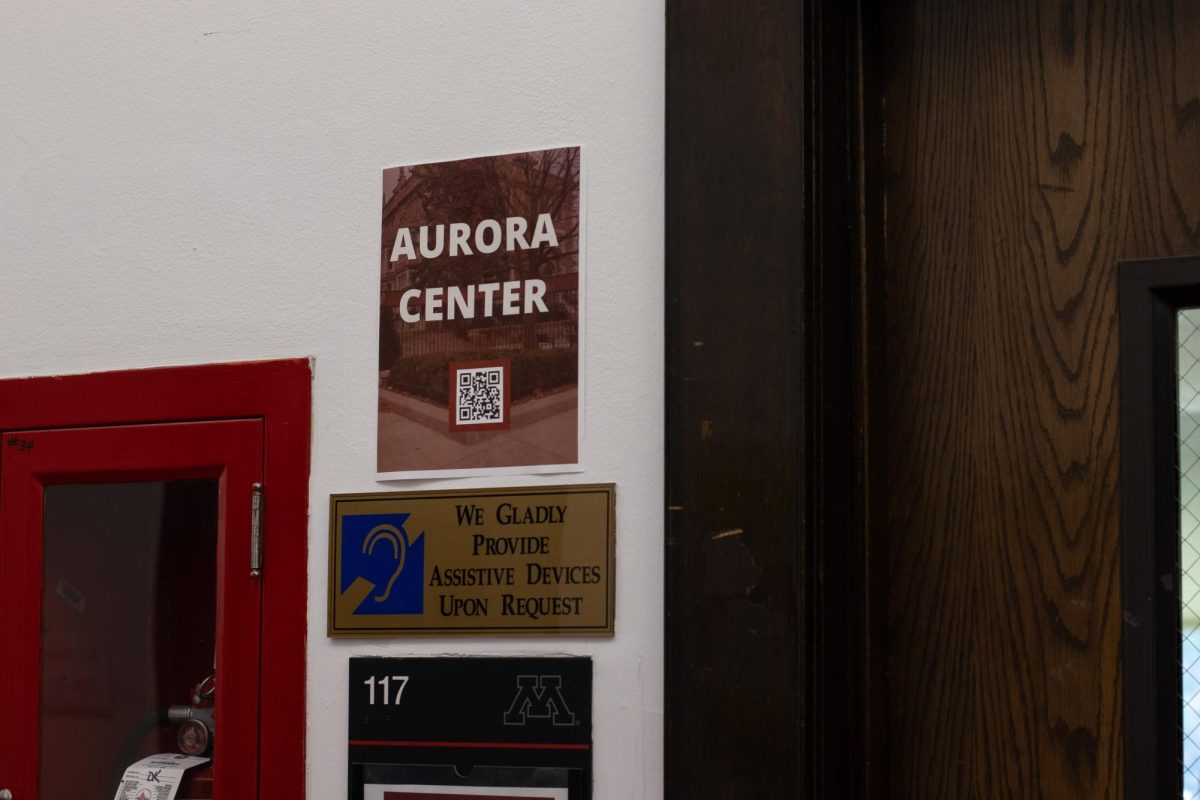On February 18, I saw a new sign on the front lawn on the University of Minnesota Students’ Cooperative that read: “FRAT BOYS: STOP RAPING PEOPLE.”
The night before, I’d been informed that the University’s local Delta Upsilon chapter had been suspended by its national headquarters for “serious violations of the fraternity’s ideals and principles.”
About a year before, after members of Delta Upsilon were apparently aware that their then-president had been found responsible by the University’s EOAA office for sexually assaulting me the previous April, neither his membership nor his presidency were suspended. After a second EOAA hearing, he was again found responsible for sexual assault, but still attended spring formal the next weekend.
If the suspension of DU has spurred thoughts and actions surrounding the issue of sexual assault within the greek community, maybe the losses that I — and the other student who reported my same perpetrator — have endured were worth something after all.
The common rhetoric of “yeah, sexual assault is bad, but calling all frat boys rapists isn’t going to solve anything!” is unproductive at best. If one’s knee-jerk response is “but not all fraternity men have committed sexual assault,” the point has been missed entirely.
No one is trying to claim that all fraternity men commit sexual assault. However, it is true that there are a number who have, some of whom have been disciplined for their actions, and others who have not. And yet, I hear far many more voices crying slander than I hear actually addressing the issue of campus sexual assault.
Stop whining, quit denying the truth, get up, and do something about it. Recruit brothers who have respect for women. Understand that victims have nothing to gain personally from reporting an assault. Take official University investigation findings seriously. Promote a culture in which pressuring, harassing, “taking advantage of” and assaulting women are seen as unacceptable — even when they may be drunk, not fighting back or dressed in a certain way.
To sorority women: foster sisterhoods where victim-survivors are supported, and do not continue to spend time with the men who have assaulted them. Do not invite known offenders to philanthropy or social events.
If those who take issue with the University co-op signs would use a tenth of the energy they expend complaining about them, to instead work on solving the actual problem at hand, the signs wouldn’t be needed in the first place.
Maria Gilbert
University of Minnesota student and campus sexual assault survivor








